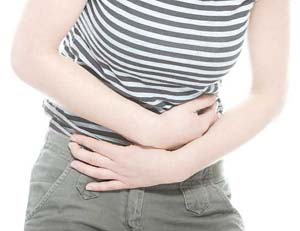Kidney Stones: Symptoms and Prognosis
 Kidney stones can be an independent disease in itself or appear as complication of other renal diseases such as kidney cysts, medullary sponge kidney and polycystic kidney disease.
Kidney stones can be an independent disease in itself or appear as complication of other renal diseases such as kidney cysts, medullary sponge kidney and polycystic kidney disease.
Though it is benign, large stones can easily obstruct normal discharge of urine and cause pain, hydronephrosis or even kidney failure and tumor if the obstruction can not be relieved for a long time.
Kidney stones will cause a variety of symptoms
1. Back pain. Renal colic is the typical sign of kidney stones. Patients often suffer from sudden and unbearable pain in one side of the back and waist during the night or after strenuous activities. The pain is usually like cutting with knife and patients will feel nausea, vomiting, paleness and much sweating, etc. After the pain, there can be stones found in urine.
2. Blood urine. Blood in urine is very common among kidney stone patients, but in most conditions, it is microscopic hematuria(blood can not be seen with naked eyes but need the help of microscope).
3. Hydronephrosis. The obstruction of renal pelvis and ureter can block urine and cause urine retention in the kidneys. Long term hydronephrosis can affect the functions of the involved kidneys and if both kidneys are affected, it might lead to uremia if not treated timely or properly.
4. Fever. One type of kidney stones is caused by bacterial infections (infectious stones) and the stones will in turn induce bacterial infection and cause fever. Since urine can not be discharged, the bacteria can not be discharged too and in severe conditions it can cause sepsis which is life-threatening.
How to achieve a better prognosis for kidney stones?
Hydronephrosis is very common among kidney stone patients, if the obstruction lasts for a short time, renal functions can be completely recovered after the stone is removed. However if the obstruction lasts for long time, it might be difficult to recover the damaged renal functions even if the stone is removed. Therefore we can see that timely treatment is very crucial for a better prognosis.
Since there are about 50% kidney stones will relapse within 10 years, it is very important to know how to prevent further formation of stones.
Have more water intake;
Have proper and mild exercises;
Do not have too much high-oxalate foods such as spinach, mustard and do not have too much supply of vitamin C;
Limit the intake of organ meats, sea foods, red meats and nuts;
Take proper alkaline medicines to help dissolving uric acid and cystine.
next:next:none
